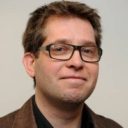Before I start, I’d like to warn the reader that, unless by mistake, I will not use any of the following terms; leadership, trust, innovation, change and – above all – think outside the box. Not that I dislike these terms or don’t accept what they represent, on the contrary. But two and a half days at the Philea Forum have confirmed and even reinforced all my prejudices that these terms can – as money – also be subject to inflation and should be used more carefully. Ergo, not in this humble attempt to a blog.
So, to start on a less critical note, the Philea Forum has absolutely succeeded in making all ancient AGA-alumni feel at home while at the same time it was open to a whole new generation bringing a new and vibrant spirit, insights and even vocabulary. Also, one can only celebrate that the future of philanthropy looks clearly more female than before. Just like in music where Patti Smith was always less popular than Bruce Springsteen or how PJ Harvey is underestimated compared to Nick Cave, the balance of Male CEO’s and board members versus female program officers, seems to be slowly shifting (too) and it’s about time philanthropy did catch that boat.
Yet the subject of this blog is quite male, aged 42 and called Adil. I met Adil when looking for the lunch room (don’t ask). He moved from Morocco to Barcelona when he was 18 years old, is trained as a teacher and has a part-time job as a security guard in the Convention Centre. He was looking at one of the digital information screens and asked me after showing me the right direction in return – in perfect Oxford-English – what Philea did stand for.
I told him about Philea as a hub for a wide and diverse group of foundations and other philanthropic organisations that are committed to tackle a range of (global) issues such as Climate Change, Human Rights, Arts and Culture as drivers for Social Change, Civic Participation, Education, Migration, etc. He seemed impressed and nodded respectfully when I told him about all those projects, foundations, grantees, donors, changemakers.
I asked him about his life in Barcelona and he told me about his family that lives in the quarter El Raval, the quarter with the highest population density of Barcelona with more than 50.000 people living on not much more than one square kilometer. Half of that population has foreign roots, which makes El Raval the most ethnic diverse neighborhood in an already very diverse city.
As said, Adil works part-time as teacher and as security guard. As he could not work enough hours as a teacher – apparently only effective teaching hours counts as eligible for your working status – he was not allowed to let his wife and children come over from Morocco, so he took an extra job as security guard. As a teacher he mainly teaches English to children from Pakistan and Romania, two of the strongest growing ethnic groups in El Raval. In his scarce free time, he is a volunteer soccer coach for a team that consist of youngsters with drug problems. His wife runs a local garden to teach young girls grow local fruits and vegetables, but it is mainly a mental health program and a safe zone for minor unguided refugee girls that are exposed to prostitution as soon as they arrive in Spain. Adil also told me he was part of a project that produced a local calendar with all festive and important days of all 27 main religions that are present in El Raval. He also sends 100 euros per month to his family in Morocco where his two nephews are building a new school in a rural area where most families are leaving so schools are closing in many places. The biggest philanthropist of the Philea Forum was not part of a session, one of the exquisite dinners or a plenary session. The biggest philanthropist is Adil and works as a security guard in the convention center.
Which made me wonder why community philanthropy was – in my humble opinion – somehow underrepresented at the Forum. Community philanthropy, in all its unique forms and diversity, is a collective term that represents the roots for all forms of philanthropy mentioned above. It’s the – sometimes invisible – jungle of fine, tiny and fragile but oh so important roots where upon we all can foster and grow. It’s the millions of people living from rural areas to populated cities who buy papers and cars, save and lend their money from corporations and banks who have their own foundations. It’s the core of the social fabric of our society. It’s Adil and his wife.
Jan Despiegelaere is General coordinator Community Foundation West Flanders, managed by the King Baudouin Foundation.






Comments (1)
Thank you Jan, for this best blog post on a Philea (and EFC) conference so far. And thank you Adil! Because, Jan, we met and talked in the lunch room of the Convention Centre). Living in a country, as I told you, where community foundations are unknown, I would love to see them more in the focus of the forum in the future.